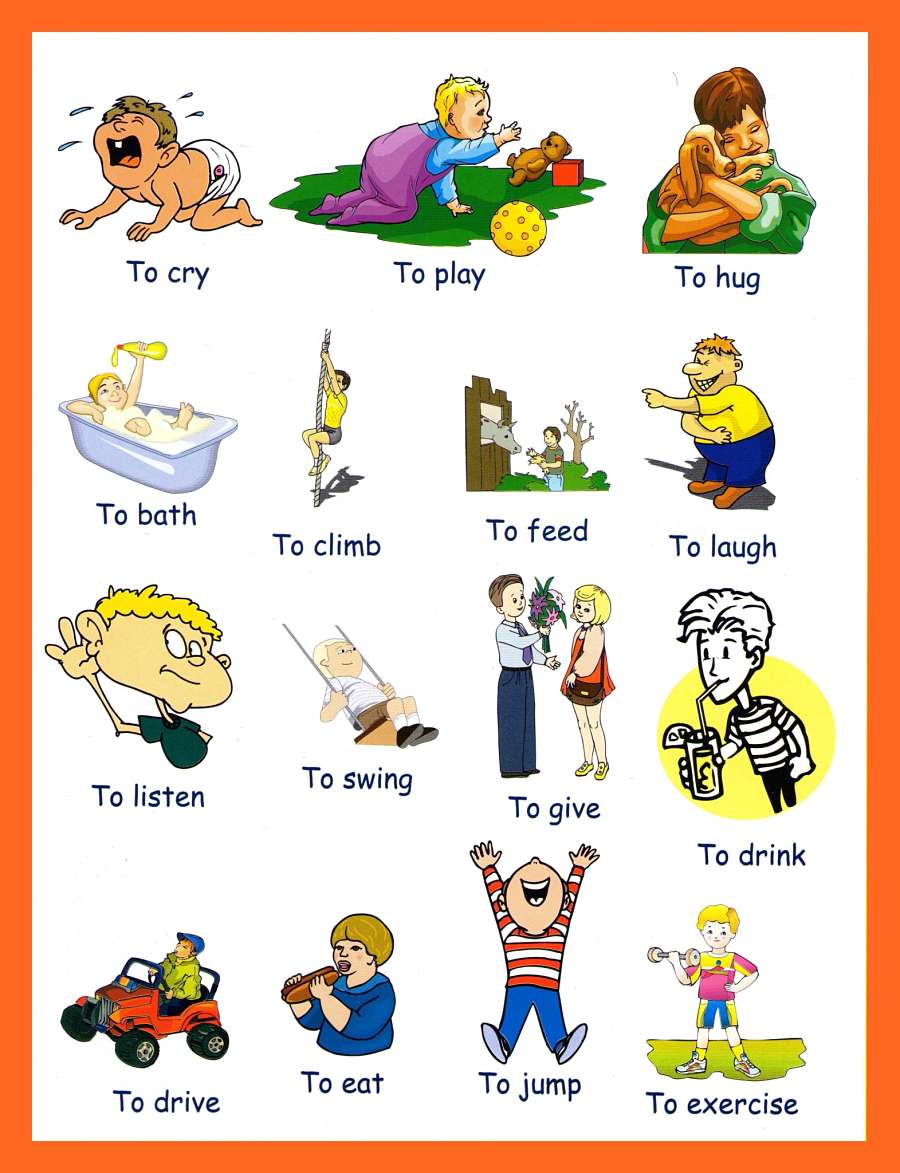English List Of Verbs Dictionary

The key word in most sentences, the word that reveals what is happening, is the verb. It can declare something ( You ran ), ask a question ( Did you run? ), convey a command ( Run faster!
Learn and study the most frequently used 1000 English vocabulary verbs used in speaking. However, 457 words were primarily used as verbs, while the remaining 553 words were different types but could be used as. List, 58, (noun, verb). Past tense irregular verbs. (The present participle and gerund forms of verbs, ending in -ing, are always regular. In English, these are used as verbs, adjectives, and nouns.) In the case of modal verbs the present and preterite forms are listed, since these are the only forms that exist. Some main verbs are called linking verbs (or copular verbs). These verbs are not followed by objects. Instead, they are followed by phrases which give extra information about the subject (e.g. Noun phrases, adjective phrases, adverb phrases or prepositional phrases). Phrasal verbs. A phrasal verb is a verb that is made up of a main verb together with an adverb or a preposition, or both.Typically, their meaning is not obvious from the meanings of the individual words themselves.
English List Of Nouns Dictionary
), or express a wish ( May this good weather last! ) or a possibility ( If you had run well, you might have won; if you run better tomorrow, you may win ). You cannot have a complete English sentence without at least one verb. Understandably, this multitalented part of speech can be analyzed and categorized in any of several ways. For example, this dictionary distinguishes between a, labeled “(used with object),” as in The country fought two wars at the same time, and an, labeled “(used without object),” as in He fought in both of them.
100 Most Used Verbs
As we can see with fight, some verbs can be either transitive or intransitive. Another analysis is offered by the grammarians Quirk, Greenbaum, Leech, and Svartvik in their renowned A Comprehensive Grammar of the English Language.
They divide verbs into three categories: (1) modal auxiliary verbs, a short list comprising can, may, will, shall, could, might, would, should, and must, all of which are “helping” verbs, as in Congress will vote tomorrow, and (2) primary verbs, the smallest group— be, do, and have —all three of which can be either auxiliaries ( I am leaving for school now; I did finish my homework; I have studied enough ) or main verbs ( I am happy; I did my best; I have a good teacher ), and (3) full verbs, the largest group by far, containing all the rest. A third approach differentiates an from one that is. An action verb expresses something you can do ( run, study, sit, want ) or something that can happen ( leak, end, appear, collapse ). In contrast, a stative verb expresses an ongoing state or condition ( I know all the answers; we own our house; they fear failure ). Some verbs, like be, are in both camps: In she is careless, the verb is is stative, describing a permanent trait. In she was being careless in losing those documents, the verb was is an action verb, describing a specific act of carelessness. The same mutability is seen in verbs of the senses ( smell, taste, feel ): Mmm, smell that coffee [action]; the coffee smells wonderful [stative].
We can also distinguish the linking verb (more formally known as a ) from verbs that can take an object or be modified by an adverb. Linking verbs identify or describe a subject by connecting it with a noun, an adjective, or a prepositional phrase in a following ( she is a doctor; they were delighted; we will be at the party ). Other linking verbs, like feel, appear, smell, taste, look, become, and stay perform the same concatenating function. A number of them happen to be stative, but not all; get and act, for example, are both linking and action verbs ( the weather got warmer yesterday; she acted surprised ). As we can see, a single verb can be categorized in more than one way, depending on which type of analysis we subject it to. And finally, we can look at English verbs in terms of a number of grammatical features that are expressed by changes in their form or changes in the way sentences are constructed.